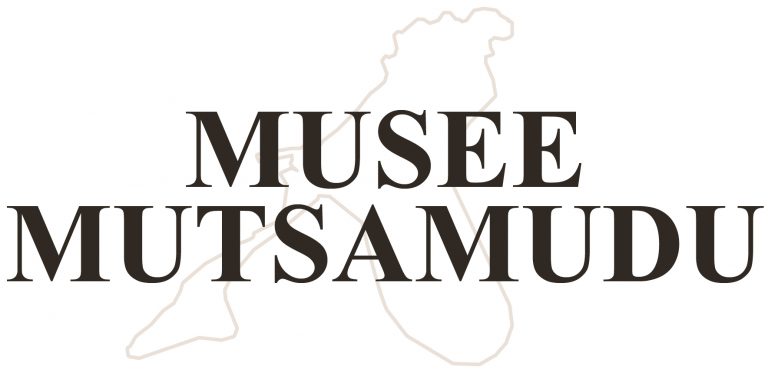Qatar National Library Digital Repository
NOTA BENE :
La photo portrait est bien celle du Sultan Alawi II dit Alawi Mtiti mais, le texte résume des péripéties d’un de ses fils, Abdullah.
Portrait en studio d‘Abdullah Bin Alawi, également connu sous le nom de Prince Abudin, fils d‘un Sultan déchu de l‘île de Nzwani, dans l‘archipel des Comores, qui avait une fois représenté son père en tant qu‘ambassadeur à Maurice. Bien qu‘en réalité plus prince, au début de 1858, il réussit à convaincre le Résident politique britannique à Aden, et par la suite d‘autres administrateurs du monde entier, qu‘ils devaient lui accorder certains privilèges. Pendant presque une décennie, il a voyagé à travers le monde sous différents noms d‘emprunt aux frais du Gouvernement britannique. Alawi est allé à Karachi, Mascate, Zanzibar, Madras, Sri Lanka, Aden, Madagascar, Le Cap, Paris et en 1863, il est finalement arrivé à Londres et a été entendu pour la dernière fois au Caire en 1866. Selon Jeremy Prestholdt, l‘affaire Abdullah Bin Alaw « […] révèle l‘efficacité des performances interculturelles de similitude – une stratégie d‘appel que j‘appelle similitude – sur la scène des relations mondiales. Il montre comment l‘utilisation stratégique de symboles importés a affecté les producteurs de ces symboles et, finalement, leurs relations avec les Nzwaniens. Les Nzwaniens se sont appuyés sur la similitude pour affecter les relations avec des étrangers divers, y compris les visiteurs arabes, français et américains. Mais en explorant le cas extrême des appropriations nzwaniennes de l‘anglais, nous pouvons mieux discerner comment l‘appropriation culturelle de symboles, même dans des lieux apparemment marginaux, a affecté les schémas de relations mondiales ». Cit. Prestholdt, J. (2008). Domesticating the world: African consumerism and the genealogies of globalization. Berkeley: University of California Press., p. 13., Titre de l‘article. Date établie par le personnel de la bibliothèque., Main Heritage Compact General, HC.HP.25165, 2–D Graphic, Item–ID: i1553263x, BIB–ID: 1006689, Prestholdt, J. (2008). Domesticating the world: African consumerism and the genealogies de la mondialisation. Berkeley: University of California Press, pp. 13–17.
| Title | Colonel Abdulla Prince of Johanna |
| Subject | |
| Description | Studio portrait of Abdullah Bin Alawi, also known as Prince Abudin, the son of a deposed Sultan of Nzwani Island, in the Comoros Archipelago, who had once represented his father as an ambassador to Mauritius. Though in reality no longer a prince, in early 1858 he managed to convince the British Political Resident in Aden and subsequently other administrators around the globe that they should grant him certain privileges and for almost a decade he travelled the world under various assumed names at the expense of the British Government. Alawi went to Karachi, Muscat, Zanzibar, Madras, Sri Lanka, Aden, Madagascar, Cape Town, Paris and in 1863 he finally made it to London and was last heard of in Cairo in 1866. Jeremy Prestholdt’s uphold that the Abdullah Bin Alaw case » […] reveals the efficacy of cross-cultural performances of similarity – a strategy of appeal that I call similitude – on the stage of global relation. It demonstrates how the strategic uses of imported symbols affected the producers of those symbols and ultimately their relation to Nzwanians. Nzwanians relied on similitude to affect relations with diverse foreigners, including Arab, French, and American visitors. But by exploring the extreme case of Nzwanian appropriations of Englishness, we can more clearly discern how the cultural appropriation of symbols in even seemingly marginal locales has affected patterns of global interrelation ». Cit. Prestholdt, J. (2008). Domesticating the world: African consumerism and the genealogies of globalization. Berkeley: University of California Press., p. 13., Title from item. Date devised by Library staff., Main Heritage Compact General, HC.HP.25165, 2-D Graphic, Item-ID: i1553263x, BIB-ID: 1006689, Prestholdt, J. (2008). Domesticating the world: African consumerism and the genealogies of globalization. Berkeley: University of California Press, pp. 13-17. |
